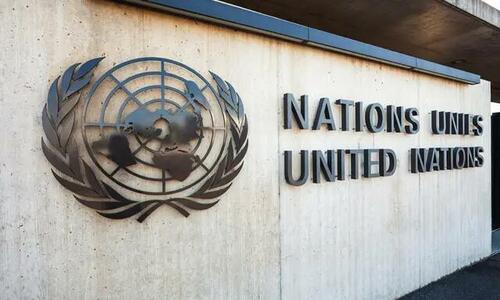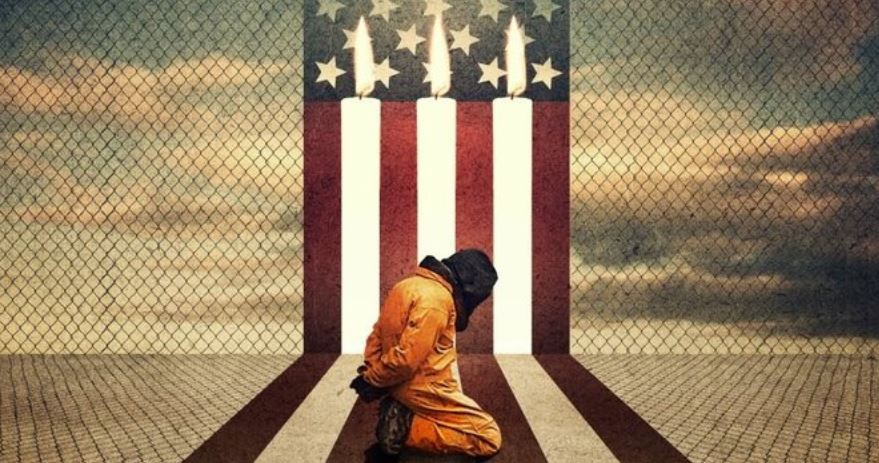United Nations Countering ‘Deadly Disinformation’ Through Creation Of ‘Digital Army’
Authored by Katabella Roberts via The Epoch Times (emphasis ours),
The United Nations (U.N.) says it is battling mis- and disinformation on social media and beyond through what it calls a “digital army” located across the globe.

In an Aug. 19 press release, U.N. officials said peacekeepers throughout the world are building the “digital army” through smartphones, editing apps, and “innovative approaches” as part of efforts to “fight back against falsehoods that can trigger tensions, violence, or even death.”
The intergovernmental organization has also been monitoring how mis- and disinformation and hate speech can “attack health, security, stability” as well as progress towards its Sustainable Development Goals (SDGs), officials said.
“Digital platforms are crucial tools that have transformed social, cultural, and political interactions everywhere. Across the world, they connect concerned global citizens on issues that matter,” U.N. Secretary-General António Guterres said in a policy brief (pdf) published in June on information integrity on digital platforms.
Such platforms have “given people hope in times of crisis and struggle, amplified voices that were previously unheard, and breathed life into global movements,” Mr. Guterres wrote.
However, they have also “exposed a darker side of the digital ecosystem,” the U.N. secretary-general noted.
“They have enabled the rapid spread of lies and hate, causing real harm on a global scale,” he wrote in the brief. “Optimism over the potential of social media to connect and engage people has been dampened as mis- and disinformation and hate speech have surged from the margins of digital space into the mainstream. The danger cannot be overstated.”
The U.N. policy brief acknowledges that there are “no universally accepted definitions” of the term “disinformation” but says the U.N.’s own working definition of the term refers to “false informatio

‘Digital Army Capable of Detecting False Information’
Disinformation is described by the United Nations Educational, Scientific, and Cultural Organization (UNESCO) as “false or misleading content that can cause specific harm, irrespective of motivations, awareness or behaviors.”
The term “misinformation” is described in the U.N. policy brief as “the unintentional spread of inaccurate information shared in good faith by those unaware that they are passing on falsehoods.”
“Misinformation can be rooted in disinformation as deliberate lies and misleading narratives are weaponized over time, fed into the public discourse, and passed on unwittingly,” the U.N. brief reads. “In practice, the distinction between mis- and disinformation can be difficult to determine,” it adds.
According to the U.N., peacekeepers have been working across the globe to put “new tools into the hands of civilians of all ages” aimed at combatting mis- and disinformation, including launching workshops in the Democratic Republic of the Congo (DRC).
Peacekeepers at the workshops are training young people to become “a digital army capable of detecting false information” by “producing content with the help of a smartphone and editing software and simultaneously spreading objective, credible information” through what they call “relay clubs” that disseminate these messages through their networks.
Misinformation ‘Festival’
The U.N. is also launching similar efforts in Mali, where it recently held a “festival” to combat misinformation which drew crowds of nearly 400 people, officials said.
Earlier this month, in Abyei—which is located on the border between South Sudan and Sudan and is a disputed region—the U.N. mission there, the United Nations Interim Security Force for Abyei UNISFA, also launched its own radio station called “Voice of Peace” aimed at countering hate speech and fake news, according to the latest press release.
“The ability to disseminate large-scale disinformation to undermine scientifically established facts poses an existential risk to humanity and endangers democratic institutions and fundamental human rights,” Mr. Guterres concluded in the June policy brief.
The announcement regarding the U.N.’s “digital army” comes shortly after the U.N. Development Programme (UNDP) quietly rolled out its automated fact-checking and anti-disinformation tool, iVerify, this spring.
The tool, which is supported by the UNDP Chief Digital Office and the UNDP Brussels-based Task Force on Electoral Assistance and developed in concert with media organizations and the private sector, uses Artificial Intelligence, machine learning, and human-supported fact-checking to “identify false information and prevent and mitigate its spread,” according to the U.N.
On its official website, the U.N. says the new tool will be provided to “national actors,” who can then use it to review content and establish whether it is “fact-checkable and/or constitutes hate speech, as opposed to the expression of an opinion.”
The new tool was originally piloted in Zambia, ahead of the August 2021 general elections, and was used in the general election in Honduras in November 2021, according to the U.N., which noted the tool helped combat “the spread of false narratives during election periods.”
According to Breitbart, iVerify was developed in partnership with Meta and “left-wing nonprofit groups,” including the International Fact-Checking Network, which is funded by billionaire George Soros.
Tyler Durden
Thu, 08/24/2023 – 02:00 Source
Related posts:
Views: 0
 RSS Feed
RSS Feed

















 August 24th, 2023
August 24th, 2023  Awake Goy
Awake Goy 



 Posted in
Posted in  Tags:
Tags: 
















